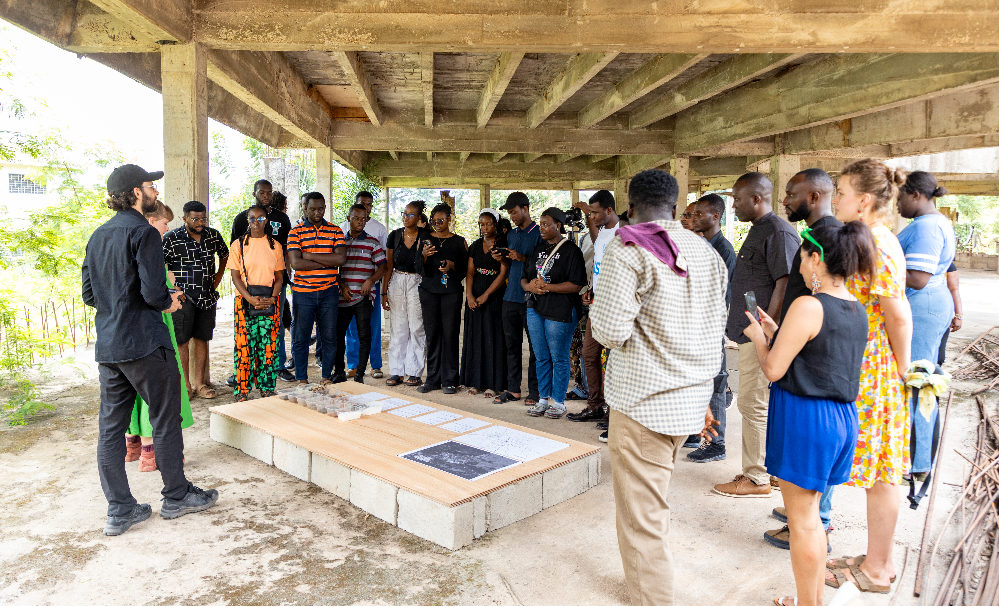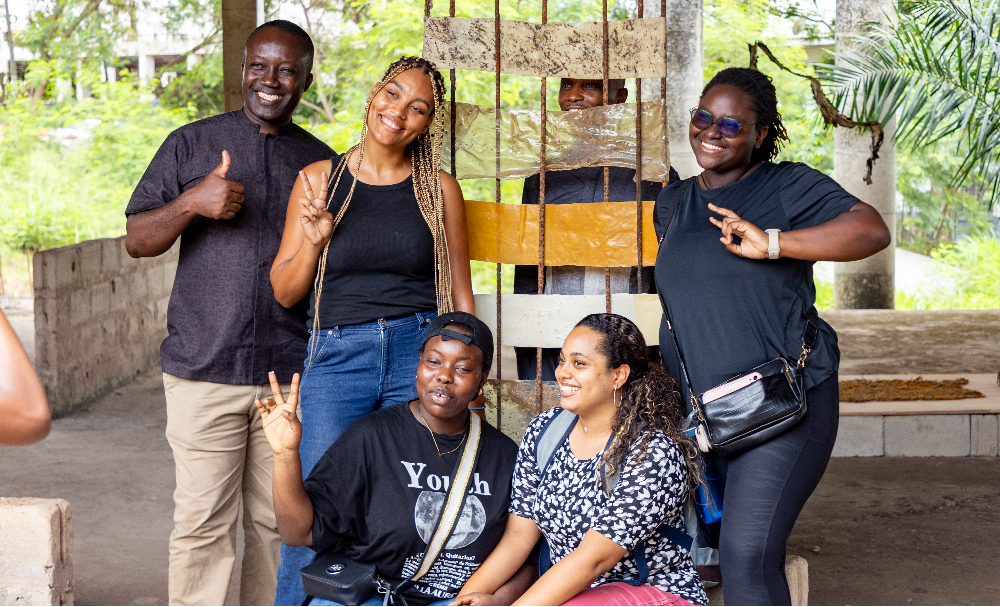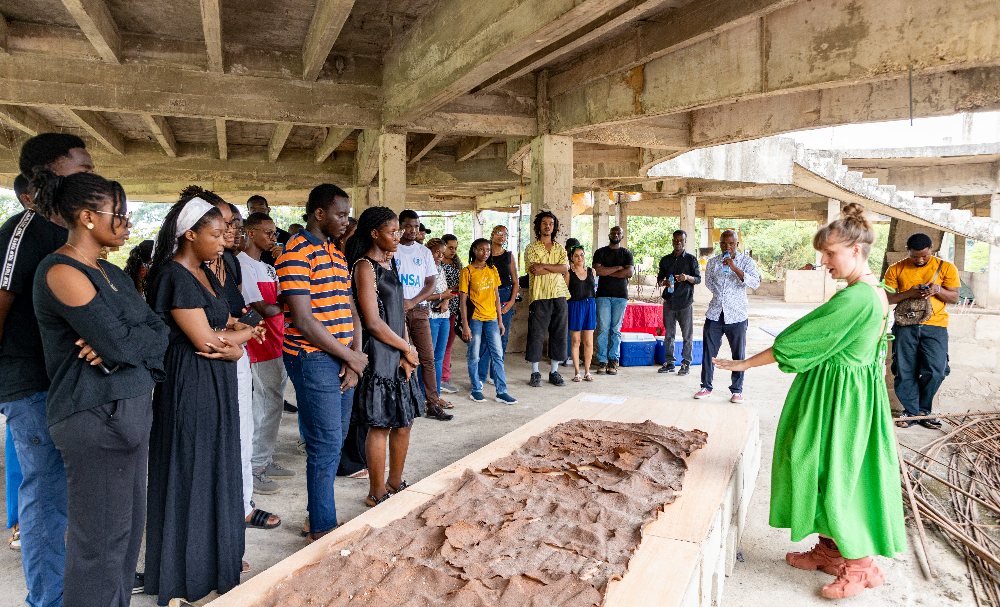The Kwame Nkrumah University of Science and Technology (KNUST), in partnership with the Architectural Association School of Architecture / Visiting School (AA VS) and the Limbo Museum in Accra, has officially opened the Design-Build Workshop Exhibition of the inaugural Limbo Architecture Lab.
This innovative exhibition is installed within the unfinished John Kufuor Presidential Library on the KNUST campus.

The exhibition showcases a striking collection of prototypes crafted from natural and biobased materials. Created by an interdisciplinary team of KNUST and international students in collaboration with the Copenhagen-based Natural Materials Studio, the showcased works explore sustainable, speculative building applications that challenge conventional construction methods.
The Limbo Architecture Lab, led by German architect Lennart Wolff, is part of the Limbo Museum’s broader programme investigating the architectural and social potential of unfinished buildings across West Africa. At KNUST, the lab is a central component of a three-year initiative aimed at transforming the uncompleted John Kufuor Presidential Library into a dynamic, functional space, a living lab and a model for sustainable, non-extractive building practices.

Professor Daniel Duah, Dean of the International Programmes Office, emphasised the significance of global partnerships to KNUST’s mission. He expressed delight in the multidisciplinary collaboration involving students and faculty from Architecture, Indigenous Art and Technology, and Materials Engineering, as well as partners from the Netherlands, Denmark, and India.
Dr. Alexander Boakye Marful, Senior Lecturer in Architecture, highlighted the importance of the project in advancing material development for interior applications. He noted that upcoming phases would focus on testing the materials for potential mainstream adoption in the construction industry.
The Spring 2025 edition of the Limbo Architecture Lab was supported by the STO Stiftung, which funded material procurement, travel, and participation costs, ensuring that both international and KNUST students could engage in the programme at no cost.

















